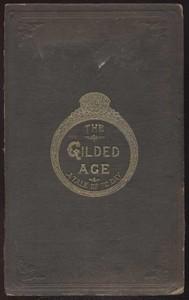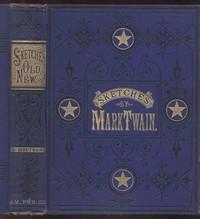Read this ebook for free! No credit card needed, absolutely nothing to pay.
Words: 45191 in 8 pages
This is an ebook sharing website. You can read the uploaded ebooks for free here. No credit cards needed, nothing to pay. If you want to own a digital copy of the ebook, or want to read offline with your favorite ebook-reader, then you can choose to buy and download the ebook.


: The Problems of Philosophy by Russell Bertrand - Knowledge Theory of; Metaphysics; Philosophy Introductions Philosophy
THE PROBLEMS OF PHILOSOPHY
PREFACE In the following pages I have confined myself in the main to those problems of philosophy in regard to which I thought it possible to say something positive and constructive, since merely negative criticism seemed out of place. For this reason, theory of knowledge occupies a larger space than metaphysics in the present volume, and some topics much discussed by philosophers are treated very briefly, if at all.
I have derived valuable assistance from unpublished writings of G. E. Moore and J. M. Keynes: from the former, as regards the relations of sense-data to physical objects, and from the latter as regards probability and induction. I have also profited greatly by the criticisms and suggestions of Professor Gilbert Murray.
Is there any knowledge in the world which is so certain that no reasonable man could doubt it? This question, which at first sight might not seem difficult, is really one of the most difficult that can be asked. When we have realized the obstacles in the way of a straightforward and confident answer, we shall be well launched on the study of philosophy--for philosophy is merely the attempt to answer such ultimate questions, not carelessly and dogmatically, as we do in ordinary life and even in the sciences, but critically, after exploring all that makes such questions puzzling, and after realizing all the vagueness and confusion that underlie our ordinary ideas.
To make our difficulties plain, let us concentrate attention on the table. To the eye it is oblong, brown and shiny, to the touch it is smooth and cool and hard; when I tap it, it gives out a wooden sound. Any one else who sees and feels and hears the table will agree with this description, so that it might seem as if no difficulty would arise; but as soon as we try to be more precise our troubles begin. Although I believe that the table is 'really' of the same colour all over, the parts that reflect the light look much brighter than the other parts, and some parts look white because of reflected light. I know that, if I move, the parts that reflect the light will be different, so that the apparent distribution of colours on the table will change. It follows that if several people are looking at the table at the same moment, no two of them will see exactly the same distribution of colours, because no two can see it from exactly the same point of view, and any change in the point of view makes some change in the way the light is reflected.
For most practical purposes these differences are unimportant, but to the painter they are all-important: the painter has to unlearn the habit of thinking that things seem to have the colour which common sense says they 'really' have, and to learn the habit of seeing things as they appear. Here we have already the beginning of one of the distinctions that cause most trouble in philosophy--the distinction between 'appearance' and 'reality', between what things seem to be and what they are. The painter wants to know what things seem to be, the practical man and the philosopher want to know what they are; but the philosopher's wish to know this is stronger than the practical man's, and is more troubled by knowledge as to the difficulties of answering the question.
The same thing applies to the texture. With the naked eye one can see the grain, but otherwise the table looks smooth and even. If we looked at it through a microscope, we should see roughnesses and hills and valleys, and all sorts of differences that are imperceptible to the naked eye. Which of these is the 'real' table? We are naturally tempted to say that what we see through the microscope is more real, but that in turn would be changed by a still more powerful microscope. If, then, we cannot trust what we see with the naked eye, why should we trust what we see through a microscope? Thus, again, the confidence in our senses with which we began deserts us.
The shape of the table is no better. We are all in the habit of judging as to the 'real' shapes of things, and we do this so unreflectingly that we come to think we actually see the real shapes. But, in fact, as we all have to learn if we try to draw, a given thing looks different in shape from every different point of view. If our table is 'really' rectangular, it will look, from almost all points of view, as if it had two acute angles and two obtuse angles. If opposite sides are parallel, they will look as if they converged to a point away from the spectator; if they are of equal length, they will look as if the nearer side were longer. All these things are not commonly noticed in looking at a table, because experience has taught us to construct the 'real' shape from the apparent shape, and the 'real' shape is what interests us as practical men. But the 'real' shape is not what we see; it is something inferred from what we see. And what we see is constantly changing in shape as we move about the room; so that here again the senses seem not to give us the truth about the table itself, but only about the appearance of the table.
The real table, if it exists, we will call a 'physical object'. Thus we have to consider the relation of sense-data to physical objects. The collection of all physical objects is called 'matter'. Thus our two questions may be re-stated as follows: Is there any such thing as matter? If so, what is its nature?
Such an argument, in my opinion, is fallacious; and of course those who advance it do not put it so shortly or so crudely. But whether valid or not, the argument has been very widely advanced in one form or another; and very many philosophers, perhaps a majority, have held that there is nothing real except minds and their ideas. Such philosophers are called 'idealists'. When they come to explaining matter, they either say, like Berkeley, that matter is really nothing but a collection of ideas, or they say, like Leibniz , that what appears as matter is really a collection of more or less rudimentary minds.
But these philosophers, though they deny matter as opposed to mind, nevertheless, in another sense, admit matter. It will be remembered that we asked two questions; namely, Is there a real table at all? If so, what sort of object can it be? Now both Berkeley and Leibniz admit that there is a real table, but Berkeley says it is certain ideas in the mind of God, and Leibniz says it is a colony of souls. Thus both of them answer our first question in the affirmative, and only diverge from the views of ordinary mortals in their answer to our second question. In fact, almost all philosophers seem to be agreed that there is a real table: they almost all agree that, however much our sense-data--colour, shape, smoothness, etc.--may depend upon us, yet their occurrence is a sign of something existing independently of us, something differing, perhaps, completely from our sense-data, and yet to be regarded as causing those sense-data whenever we are in a suitable relation to the real table.
Such questions are bewildering, and it is difficult to know that even the strangest hypotheses may not be true. Thus our familiar table, which has roused but the slightest thoughts in us hitherto, has become a problem full of surprising possibilities. The one thing we know about it is that it is not what it seems. Beyond this modest result, so far, we have the most complete liberty of conjecture. Leibniz tells us it is a community of souls: Berkeley tells us it is an idea in the mind of God; sober science, scarcely less wonderful, tells us it is a vast collection of electric charges in violent motion.
Free books android app tbrJar TBR JAR Read Free books online gutenberg
More posts by @FreeBooks


: The Gilded Age Part 7. by Twain Mark Warner Charles Dudley - Satire; Political fiction; Washington (D.C.) Fiction; Legislators Fiction; Speculation Fiction; Political corruption Fiction; Businessmen Fiction







